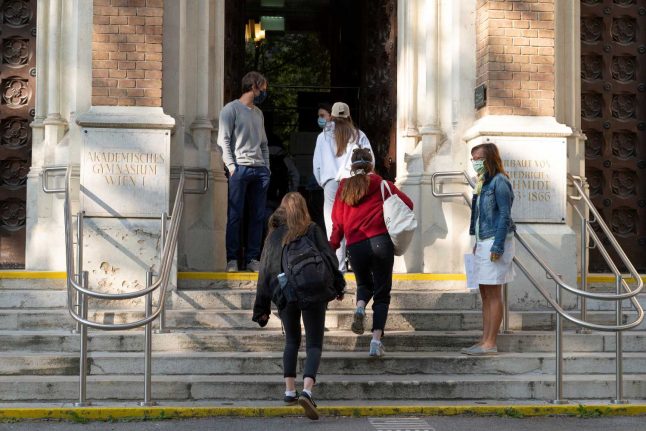NEW: Austria to re-enter lockdown on Tuesday – CLICK HERE for the latest announcements
Der Standard reported late on Friday that schools and kindergartens will close as a result of the need to cut rising coronavirus infections in Austria.
Mirroring the shutdown which took place in Austria in the spring, the schools will “remain open to families who need care”.
The closures are expected to take place for two to three weeks ahead of the Christmas holidays.
READ: Austria set for stricter coronavirus measures from Monday
Distance learning will be provided.
In addition, all shops other than banks, pharmacies and supermarkets will be required to close.
Hairdressers and other service providers are also likely to be closed under the new measures.
Austrian tabloid Kronen Zeitung reports that working from home could be made mandatory under the lockdown, while visiting nursing homes and hospitals could also be banned.
Some federal states have already put in place visitation bans or restrictions, however this would be implemented nationwide.
Der Standard reports that the decision was made on Friday afternoon, with an official announcement to be made on Saturday.



 Please whitelist us to continue reading.
Please whitelist us to continue reading.
Member comments